
The Landscapes of the Invisible
Visual artists and climate activists address climate change through an inspiring art project.
Georgian club life has long gone beyond the scope of entertainment to assume the role of social activism. As society becomes more active and vigilant, clubs attract people united around issues, offering them an informal platform for expressing their views. The art project ‘Landscapes of the Invisible’ is one such platform inspired by a collaboration between visual artists and climate activists and presented in a club space.
In March 2023, people visiting the Tess Club in Tbilisi were thrilled by a thought-provoking albeit rather worrying display of artworks uncovering the grave impacts of climate change on human lives – social and environmental insecurities, growing inequalities, threatened ecosystems and an uncertain future.
As the amazed viewers walked through the exhibition, they were struck by the depth and diversity of paintings and installations that revealed the beauty of our planet and the pain it endures.
Brought to light by a group of ten artists and environmental activists, the project was initiated by the art group ‘Collective Failure’ and the non-governmental organization ‘Climate Basics’. Most of the works were specially created for the exhibition and displayed at the Tess Club with the support of the European Union and the United Nations Development Programme as part of their EU4Climate programme.
“Contemporary art takes up the mantle of addressing the climate crises and helps inform people about responsible consumption, green lifestyle and a just transition to a sustainable green economy,” said UNDP Deputy Resident Representative in Georgia Anna Chernyshova at the opening of the exhibition on 18 March.
She noted that the EU and UNDP work with a range of Georgian artists and climate activists to make their voices reach as many people as possible.
“We can’t treat the environment as a disposable item,” says Philo Grechulevich. His painting ‘The Last Generation of Pollution’ depicts a bleak future brought on by mass consumption, uncontrolled waste generation and a polluted environment.
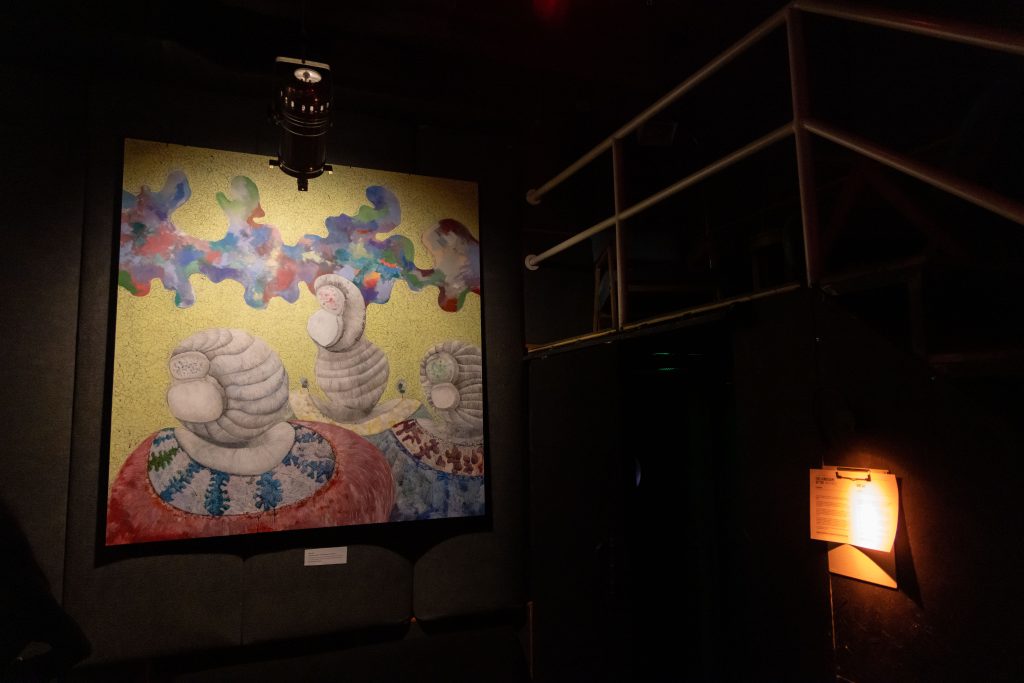
Giorgi Kavtaradze’s installation ‘The Sea Song’ explores the Black Sea pollution, highlighting the danger of destroying the flora and fauna of the region. A water tank mounted in the centre of the installation contains clear water that slowly darkens and changes colour, destroying fragile sea life.
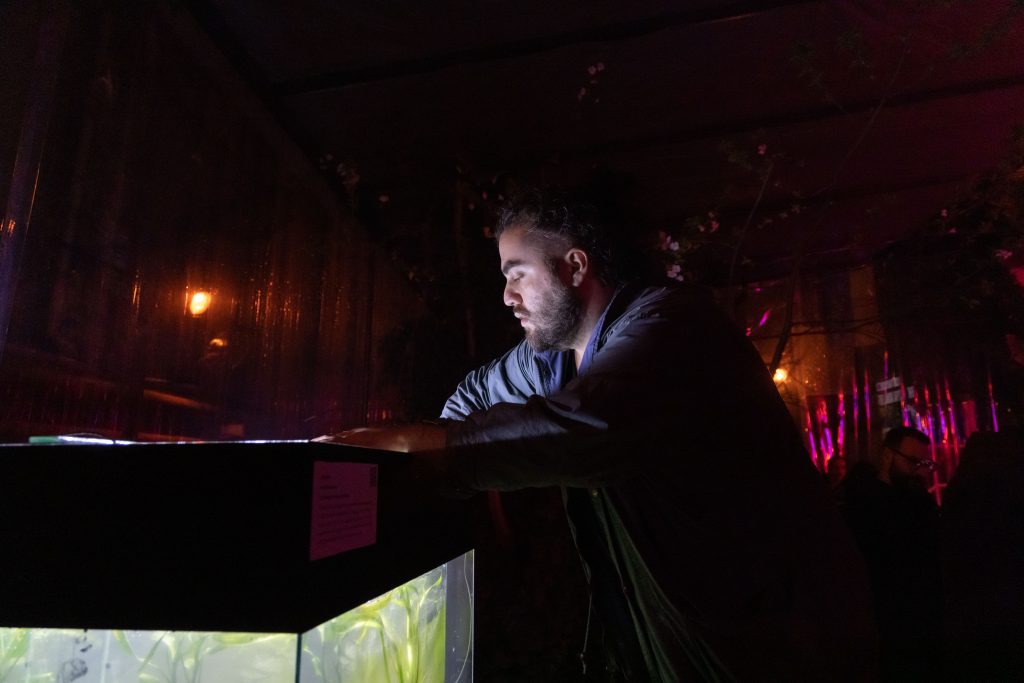
Nika Museridze invites the viewer into the world of polluted air where the endless motion of cars displayed on four screens offers a sensory experience. “It may look like beautiful nature, but nasty things are going on the inside,” he explains.
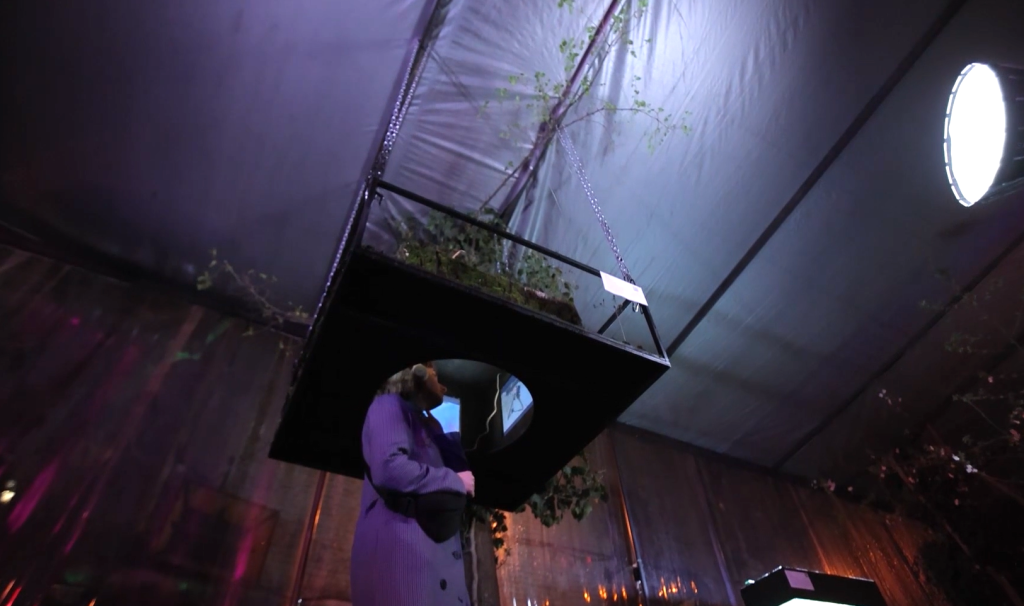
“My message is to take care of nature,” says Salomea Bauer. Her works convey the breathtaking beauty of glaciers and the sadness of their disappearance.
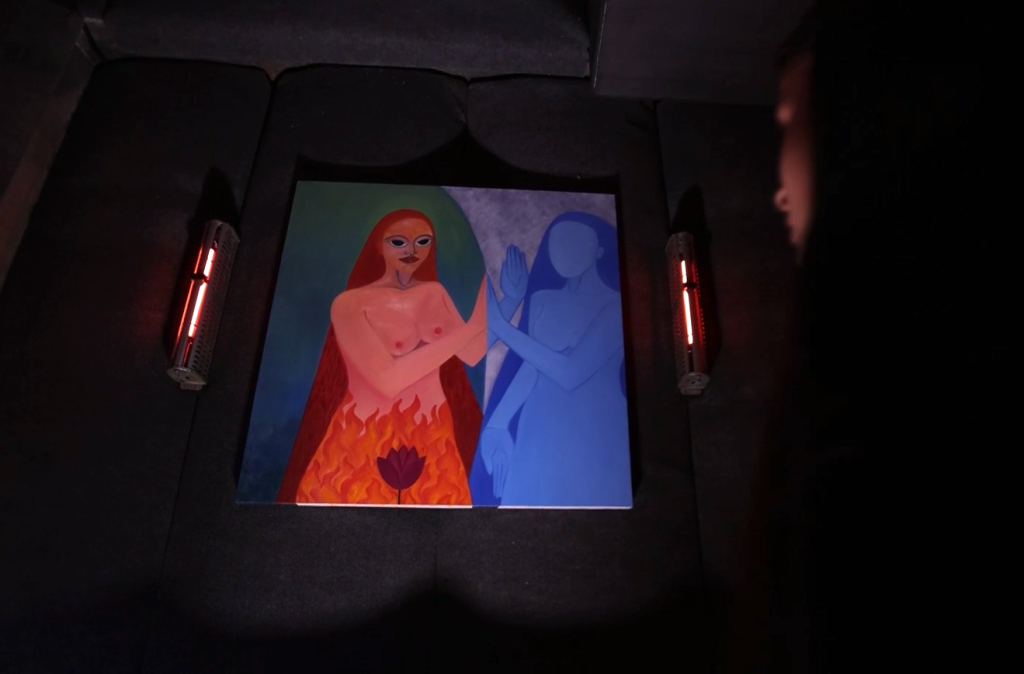
Natia Sapanadze’s work “Where else shall we go?” serves as a reminder that women and girls are particularly vulnerable to the climate crisis that exacerbates gender inequalities and threatens their security and livelihoods.
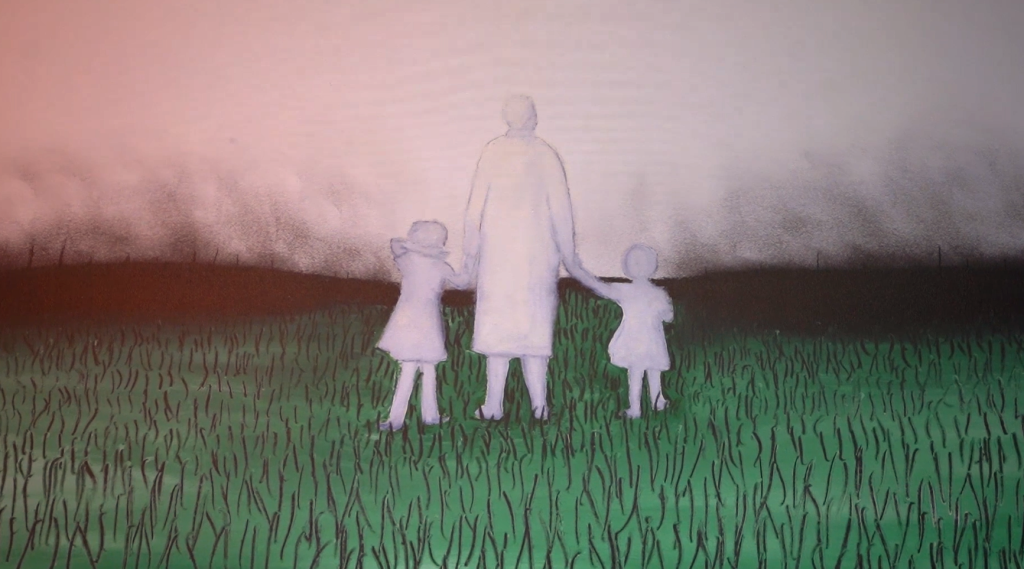
The works of Davit Kukhalashvili, Nina Art and Wermichelle reflect the unsustainable use of natural resources, environmental issues associated with manganese extraction, and the invisible struggle between people and nature.
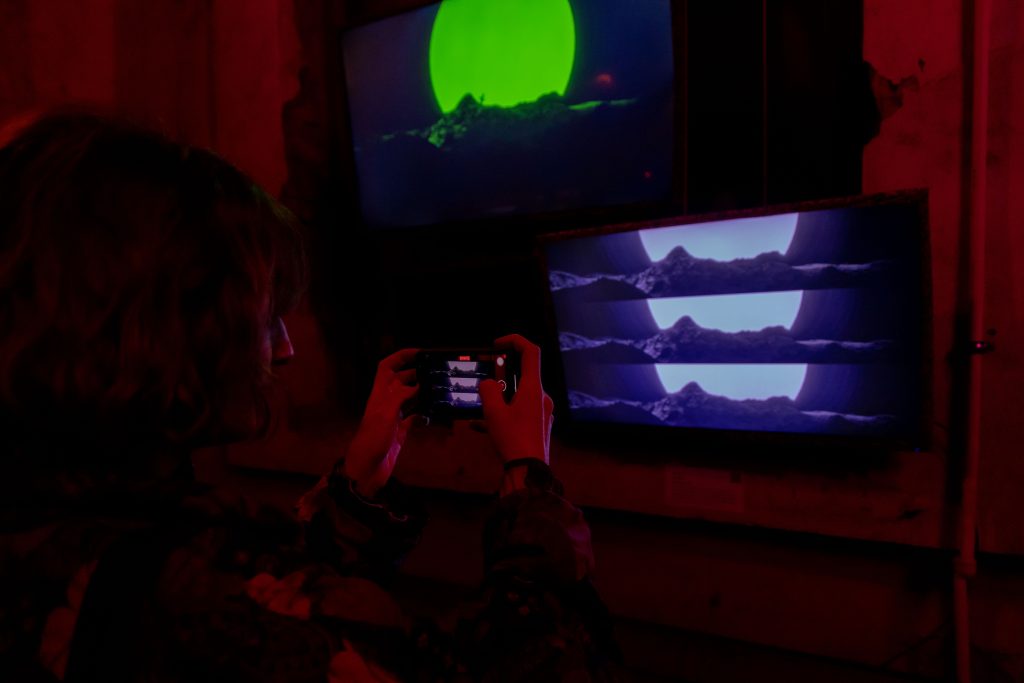
“We fail to talk about the social groups that are affected the most or the lands that are particularly vulnerable. Our art project is meant to uncover this problem and show it to everyone,” says Tuta Chkheidze, the exhibition curator.
She is concerned that climate change and environmental challenges are overlooked in Georgia and hopes that ‘The Landscapes of the Invisible’ serves as a tool for raising awareness and promoting dialogue around these issues.
The art project team shares a deep belief that climate art builds a sense of urgency and inspires people to take action. It can also help advocate for policy change and take steps to build a sustainable and climate-smart future.
***
Disclaimer: This story has been produced with the assistance of the European Union (EU) and the United Nations Development Programme (UNDP). Its contents are the sole responsibility of the art group ‘Collective Failure’ and the non-governmental organization ‘Climate Basics’ and do not necessarily reflect the views of the European Union and UNDP.